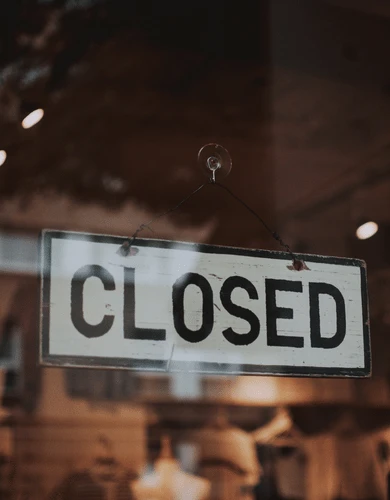Who are MOSL?
The English commercial water is a complex network of different organisations all in some way involved in delivering water and removing wastewater from business properties.
One key component of the market that most people haven’t heard of is MOSL.
MOSL are a non-profit organisation of about 60 people working together in an office in Southampton.
In short, MOSL sits right at the centre of the business water market, ensuring that transactions between the companies involved happen smoothly.
To really understand the role of MOSL, here’s our brief overview of the different components of the business water market:
Who’s who in the business water market?
There are 1.2 million businesses and other non-household properties in England that use water services. These businesses spend £2.5 billion each year on commercial water bills.
Serving these customers involves the following key organisations in the business water market:
Ofwat – The England and Wales water regulator. Ofwat is responsible for the legal compliance of all the other parties in the water industry.
- Water wholesalers – The regional water companies that maintain and operate the water infrastructure. These are the companies that actually do the job of providing one of the world’s safest water supplies.
- Business water suppliers – The companies that supply water services to non-household customers and whose responsibilities include meter readings, billing and customer services.
The business water suppliers purchase water from the wholesalers in bulk, but since there are approximately 20 competing suppliers and 12 different regional wholesalers, the transactions between them are complex.
That’s where MOSL comes in. MOSL manages the day-to-day running of the market to ensure that suppliers and wholesalers work together effectively. MOSL processes 90,000 transactions between the parties each day.
What are MOSL’s responsibilities?
On its website, MOSL grandly states that its purpose is:
“To advance simple and effective water markets to unlock value and choice for customers.”
But breaking down the lofty vision, here are the day-to-day activities that MOSL undertakes to keep the non-household market working smoothly:
Operating the Central Market Operating System (“CMOS”)
CMOS is the core system of the deregulated water market. CMOS has a record of every non-household property that is using water, wastewater or drainage services in England. Against each property, the database holds a record of:
- Services used (Water/Waste/Highways Drainage/Surface Drainage)
- The tariffs which these services are currently provided
- Details of the water meter (size, location etc.)
- The regional wholesaler(s) who manage the local infrastructure (eg. Thames Water for business)
- The business water supplier currently supplying the property
- All historical meter readings recorded against the meter
- Details of any trade effluent consents at the property
Customer transfer process
When a customer chooses to switch business water suppliers, MOSL manages the transfer process. This includes switching ownership of the CMOS record from one business water supplier to another.
An essential control that MOSL provides is to ensure that the final bill of the old supplier will end at the same estimated meter reading as the commencement of the new supplier.
Reducing gap sites
Gap sites are properties that receive a water supply but are not registered on the CMOS database. These properties use water but are never billed.
MOSL operates a gap site incentive scheme to encourage business water suppliers and wholesalers to identify the gap sites.
Adding new participants to the deregulated water market
MOSL has designed the operation of the water market to be as simple as possible to encourage new business water suppliers to enter the market. One of the key benefits of market deregulation is having fresh, more innovative companies enter the market to improve services for customers.
Unfortunately, it has been over three years since a business water supplier entered the market. Check out our article about why there was a significant rise in water prices in 2023 to encourage more suppliers to join the market.
Check out the latest business water rates.
Data insights
Through the CMOS system, MOSL has access to a tremendous amount of market performance data.
MOSL readily shares this data in a digestible format in the market charts section of its website. The information is used to analyse the performance of both wholesalers and retailers within the market.
For instance, the market charts compare business water suppliers in their performance of:
- Timeliness of meter readings
- Processing switch requests
MOSL even publishes an annual Market Performace League Table ranking all the business water suppliers.
What are MOSL’s future plans?
MOSL intends to push the development of the deregulated business water market forward in the following ways:
Improve meter reading data – Business water suppliers are required to submit water meter readings twice a year but often fail in this limited requirement. The water industry is transitioning to smart water meters that can provide real-time consumption data. MOSL has launched a Strategic Metering Review to improve water consumption data.
IT modernisation – MOSL is planning a modernisation and development program for their CMOS system to support a wider range of services and market innovation.
Market Code Simplification – Simplifying the rules and procedures that business water suppliers need to follow as part of their licence conditions. A simplification of rules will reduce the admin burden for suppliers and help attract more market participants.
Who owns MOSL?
Unlike an ordinary company, MOSL doesn’t have any shareholders.
MOSL, instead, is a private company working on behalf of its members (business water suppliers and wholesalers) to deliver the open water market for businesses.
What does MOSL stand for?
‘MOSL’ is an acronym for Market Operator Services Limited, the name of the registered company that the organisation trades under.

